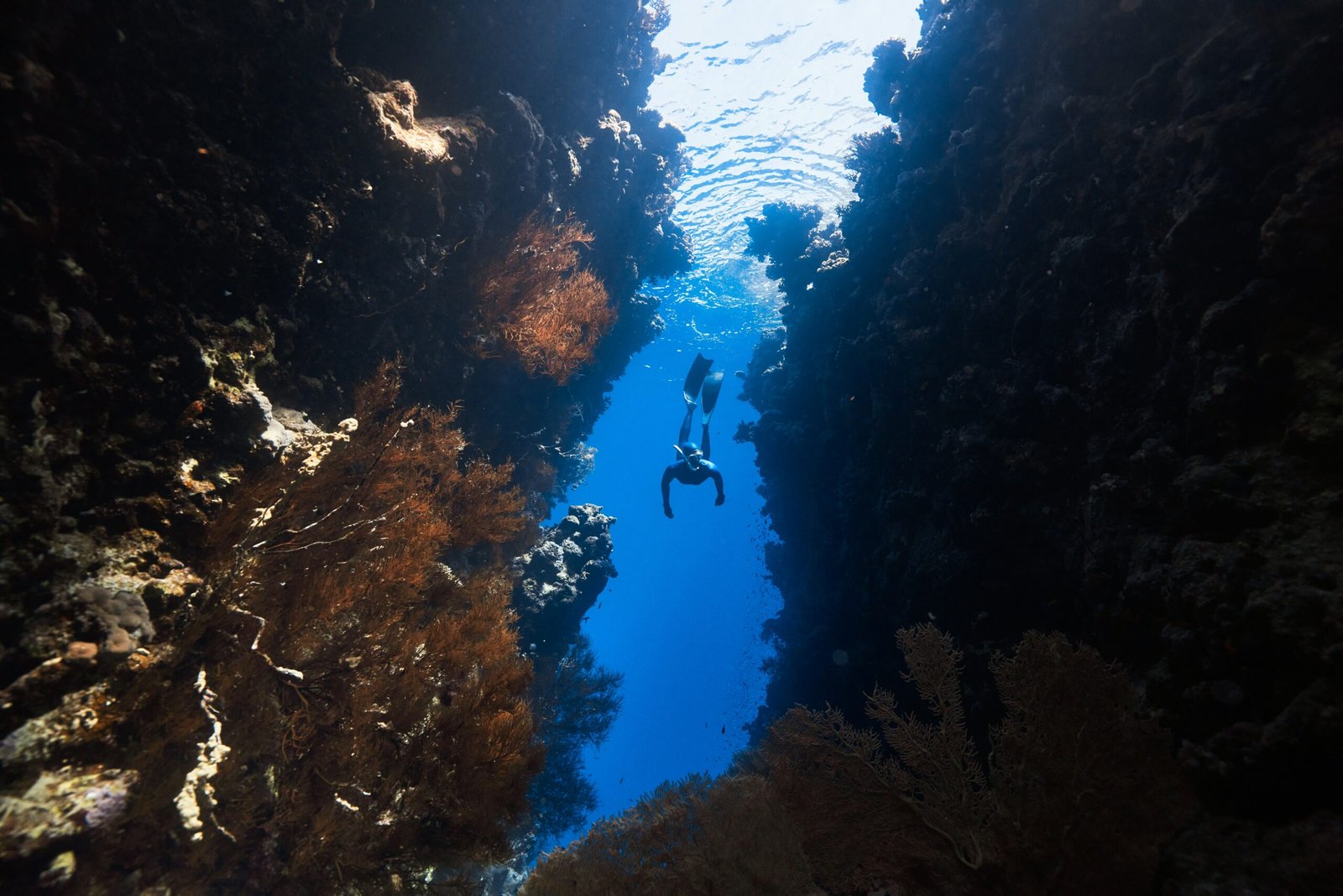
As you descend into the crystal-clear waters of a pristine coral reef, you’ll be transported to a mesmerizing world filled with vibrant colors, exotic marine life, and breathtaking formations. The purpose of this blog post is to provide you with a comprehensive guide to snorkeling and diving in these extraordinary underwater ecosystems.
The Importance of Pristine Coral Reefs
Before we delve into the specifics of snorkeling and diving, it’s crucial to understand the significance of pristine coral reefs. Coral reefs are not only visually stunning but also play a vital role in the health of our planet. They are often referred to as the “rainforests of the sea” due to their high biodiversity and the crucial ecosystem services they provide.
These delicate ecosystems support a vast array of marine species, acting as nurseries, feeding grounds, and shelter for countless organisms. Coral reefs also protect coastal areas from erosion by acting as natural barriers against powerful waves and storms.
Unfortunately, coral reefs worldwide are facing numerous threats, including climate change, pollution, overfishing, and destructive fishing practices. As a result, many once-thriving coral reefs have been degraded or destroyed. Therefore, it is vital that we appreciate and protect the remaining pristine coral reefs that still exist.
Snorkeling: A Window into the Underwater World
Snorkeling is an accessible and exhilarating way to explore the beauty of coral reefs. All you need is a mask, snorkel, and fins, and you’ll be ready to embark on an unforgettable underwater adventure. Whether you’re a beginner or an experienced snorkeler, there’s always something new to discover beneath the surface.
Imagine gliding effortlessly above the coral gardens, observing the intricate patterns and vibrant colors of the coral formations. You might encounter a curious sea turtle gracefully swimming by or a school of colorful fish darting in and out of the coral crevices. Snorkeling allows you to witness the wonders of the underwater world without the need for extensive training or equipment.
However, it’s crucial to remember that while snorkeling is a relatively safe activity, it’s essential to follow certain guidelines to ensure your safety and the preservation of the coral reef ecosystem. Always practice responsible snorkeling by avoiding touching or standing on the coral, as even the slightest touch can cause irreparable damage. Additionally, be mindful of your surroundings and the presence of other marine life to avoid any accidental disturbances.
Diving: Immersion into a Hidden Realm
If you’re looking to take your underwater exploration to the next level, diving offers a more immersive experience. With scuba diving, you have the opportunity to descend deeper into the depths of the coral reef, unveiling its hidden treasures up close.
Equipped with a dive tank and regulator, you’ll be able to explore the nooks and crannies of the reef, discovering a whole new world that is inaccessible to snorkelers. As you descend further, the sunlight diminishes, and you’ll witness the magical transformation of colors, with fluorescent corals and bioluminescent organisms illuminating the darkness.
Diving also allows for a closer interaction with marine life, as you may encounter larger species such as sharks, rays, and even dolphins. However, it’s important to approach these encounters with respect and caution, ensuring that you do not disturb or harm the animals or their habitat.
Just like snorkeling, responsible diving is crucial for the preservation of coral reefs. Adhere to proper buoyancy control techniques to avoid accidental contact with the fragile coral. Additionally, always follow the guidelines set by your dive instructor and respect the marine life’s natural behavior.
Snorkeling: Exploring the Shallow Depths
If you’re new to underwater adventures, snorkeling is a fantastic way to get started. With just a mask, snorkel, and fins, you can explore the vibrant world just beneath the surface of the water.
One of the great advantages of snorkeling is that you don’t need any special training or equipment. Simply put on your gear and swim near the surface, observing the colorful fish, intricate coral formations, and other fascinating marine life.
When snorkeling in pristine coral reefs, be sure to remember a few important guidelines:
- Do not touch or step on the coral. Coral is a living organism and can be easily damaged.
- Respect the marine life and observe from a distance. Avoid chasing or harassing the creatures you encounter.
- Use reef-safe sunscreen to protect yourself from the sun without harming the coral.
Snorkeling is a wonderful activity for people of all ages, and it provides a unique opportunity to appreciate the beauty of coral reefs up close.
As you glide through the crystal-clear waters, you’ll be amazed at the vibrant colors and intricate patterns of the coral. These underwater ecosystems are home to a wide variety of marine life, from tiny clownfish darting in and out of anemones to graceful sea turtles gracefully gliding through the water.
Snorkeling also allows you to witness the fascinating behavior of marine creatures. You might spot a school of colorful fish swimming in unison, or witness the courtship dance of a pair of angelfish. The underwater world is teeming with life and snorkeling offers a front-row seat to this captivating spectacle.
Not only is snorkeling a visual feast, but it also offers a unique sensory experience. As you float on the surface of the water, you’ll be serenaded by the soothing sounds of the ocean. The rhythmic lapping of the waves and the gentle swishing of your fins create a symphony that lulls you into a state of tranquility.
Snorkeling is also a great way to stay active and enjoy the benefits of exercise. As you swim and kick your fins, you’ll engage your muscles and improve your cardiovascular fitness. The low-impact nature of snorkeling makes it accessible to people of all fitness levels, and it’s a fun way to stay fit while exploring the wonders of the underwater world.
Whether you’re snorkeling in a tropical paradise or exploring a local reef, this activity offers a sense of adventure and discovery. With each snorkeling excursion, you’ll uncover new sights and encounter different species of marine life. The more you snorkel, the more you’ll develop your skills and become attuned to the underwater environment.
So, grab your snorkeling gear and dive into the shallow depths. The underwater world awaits, ready to enchant and inspire you with its beauty and diversity. Snorkeling is an experience like no other, and it’s a gateway to a world that few get to explore. Start your underwater adventure today and discover the wonders that lie just beneath the surface.
Diving: Discovering the Depths
If you’re ready to take your underwater adventures to the next level, diving is the way to go. With scuba diving, you can explore the depths of the ocean and experience the incredible biodiversity that exists below the surface.
Unlike snorkeling, scuba diving requires some training and certification. Before you can dive, you’ll need to complete a scuba diving course to learn the necessary skills and safety procedures. Once you’re certified, a whole new world of underwater exploration awaits you.
When diving in pristine coral reefs, you’ll be amazed by the sheer beauty and diversity of marine life. From vibrant coral gardens to schools of colorful fish, there’s always something new and exciting to discover.
Here are a few tips for responsible diving in coral reef ecosystems:
- Practice good buoyancy control to avoid accidentally damaging the coral or stirring up sediment.
- Respect the marine life and maintain a safe distance. Remember, you’re a guest in their home.
- Take only pictures and memories. Do not collect or disturb any marine organisms.
Diving in pristine coral reefs is an unforgettable experience that will leave you with a deep appreciation for the wonders of the underwater world.
Not only do coral reefs provide a breathtaking backdrop for divers, but they also play a crucial role in supporting marine ecosystems. Coral reefs are often referred to as the “rainforests of the sea” due to their rich biodiversity and importance in providing habitat for countless species.
These delicate ecosystems are home to a wide range of marine organisms, including fish, crustaceans, and invertebrates. The intricate structure of the coral reefs provides shelter, food, and breeding grounds for these creatures, creating a complex web of life beneath the waves.
However, coral reefs are facing numerous threats, including climate change, pollution, and overfishing. Rising sea temperatures can cause coral bleaching, a phenomenon that leads to the death of coral colonies. Pollution from coastal development and agricultural runoff can degrade water quality and harm coral reefs. Additionally, overfishing can disrupt the delicate balance of reef ecosystems, leading to a decline in fish populations and the loss of key species.
As responsible divers, it is our duty to protect and preserve these fragile ecosystems. By following the tips mentioned earlier and practicing sustainable diving practices, we can minimize our impact on coral reefs and contribute to their conservation.
Furthermore, diving in coral reefs can also be an opportunity to engage in citizen science initiatives. Many organizations and research institutions rely on data collected by divers to monitor the health of coral reefs and track changes over time. By participating in these programs, divers can contribute to scientific research and help inform conservation efforts.
So, if you’re ready to embark on an adventure that combines exploration, beauty, and environmental stewardship, diving in coral reefs is the perfect choice. With proper training and a commitment to responsible diving, you can discover the depths of the ocean while making a positive impact on the underwater world.
Conservation Efforts: Protecting Coral Reefs
As we mentioned earlier, coral reefs are facing numerous threats. It is our responsibility to take action and protect these valuable ecosystems. Here are a few ways you can contribute to coral reef conservation:
- Support organizations and initiatives that focus on coral reef conservation. Many non-profit organizations, such as The Coral Reef Alliance and Coral Restoration Foundation, are actively working towards protecting and restoring coral reefs. By donating to these organizations or volunteering for their projects, you can directly contribute to their efforts.
- Practice responsible tourism when visiting coral reef destinations. Choose eco-friendly operators and follow their guidelines. Avoid touching or stepping on corals, as they are fragile and easily damaged. Snorkel and dive responsibly, keeping a safe distance from the reefs and marine life. By being mindful of your actions, you can minimize your impact on these delicate ecosystems.
- Reduce your carbon footprint by making sustainable choices in your everyday life. Climate change is a major threat to coral reefs. Carbon dioxide emissions from burning fossil fuels contribute to global warming, leading to rising sea temperatures and ocean acidification. You can help combat climate change by using energy-efficient appliances, reducing your water consumption, and opting for renewable energy sources whenever possible.
- Participate in local beach and underwater cleanups to prevent pollution from reaching the reefs. Plastic pollution, chemical runoff, and marine debris can harm coral reefs and the organisms that depend on them. By joining clean-up efforts, you can help remove harmful debris and raise awareness about the importance of keeping our oceans clean.
By working together, we can make a difference and ensure that future generations can continue to enjoy the beauty and biodiversity of coral reefs. The conservation of coral reefs is not only crucial for the survival of countless marine species but also for the well-being of coastal communities that rely on these ecosystems for their livelihoods. Through our collective efforts, we can protect and restore coral reefs, preserving their ecological value and the natural wonders they hold.


